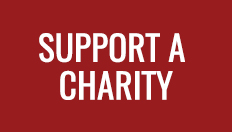It is tough to talk about possible silver linings to a pandemic, especially while so many people are suffering. The reality is that this is tough for so many people.
Yet there is much discussion out there right now about whether this terrible situation might lead to changed behavior on the societal scale.
In this context, the things that are causing us to work differently might not only clean our air, but also lead to advances in efforts to prevent climate change.
Let’s start by looking at Phoenix air quality, over-all. That National Lung Association just presented their annual State of the Air report last month, in which they listed Phoenix as one of the worst places for air quality.
Ozone and particulate pollution comes from a mix of gases from cars, burning chemicals and wood and dust. When it mixes in the heat of the sun, it creates cancer-causing effects, asthma and possibly even dementia.
Phoenix has historically been terrible in this regard. The long-term political resistance to discouraging driving, to supporting mass transit, to urban planning, to planting more trees and to discouraging the use of wood burning at homes have all fed this problem.
This is our base-line. Any possible affects from changed behavior resulting from the pandemic won’t be recorded for a while. Sure, we see ozone levels lower over the last month. But, this is a problem caused by decades of behavior and will require long-term changes.
What we want to watch for is whether people will feel and remember the benefits they had when they stayed home to work and noticed the cleaner air. That is where the ozone silver lining comes in.
Right, you did not want to stay home for as long as you did. You did not want kids yelling in your ear while you are trying to maintain professionalism on a Zoom conference call.
But also, what have you been doing with that time that you don’t spend in your car and in traffic? I’ve heard so many inspiring stories from people about how they’ve re-connected with their personal time.
But, what would the city look like if 50% of office workers asked to work from home just two days more than they do now? We know we can do it and we can feel the benefits
The silver linings for climate change comes in a different way. It comes in directing federal stimulus money to investments in clean energy.
I think people would rather see stimulus money go to clean energy choices, which can save them money on energy, than to the deep pockets of CEOs of oil companies.
On one hand, the issue of the environment may drop on people’s minds as they worry about pandemic responses. Further, according to this article, “On Capitol Hill, the pandemic could threaten the fragile politics of environmental regulation and the Republican Party’s rapidly changing climate beliefs.”
Further, the pandemic could also undermine our ability to get out and prevent wildfires this summer.
But, as the previous article points out, there may be hope in all of this. According to Rep. Kathy Castor (D-Florida), “And if one silver linings can be seen through all of this, it’s the fact that we can work together and mobilize to confront a threat to our way of life in America and all across the globe.”
Articles I’ve seen point to an increasing trust of science and scientists. That trust may increase, as it should, when it comes to climate change and its solutions.
Further, I know from my conversations with people that they like the idea that Americans are coming together to solve a common problem. After COVID-19, our clean air and climate change problems will still be there, ready for us to unite around.
This article from Wired Magazine points to some of the unexpected consequences of how our fuel choices have changed over the last two months. Auto fuel usage has dropped and electricity usage has gone down as economic activity has dropped. Yet, with cheap prices for petrol comes less of an incentive to recycle plastic.
Yet, all of this leads to a unique opportunity to re-think our cities. Some cities have taken this opportunity to close more downtown streets to cars in favor of more bike and pedestrian traffic.
Just like with ozone levels, when we come out the other end of this crisis, the more people remember and feel the benefits of less drive time, the more we can all imagine a world in which we permanently have cleaner air and a reduced threat of climate change.
And those are some nice silver livings.









